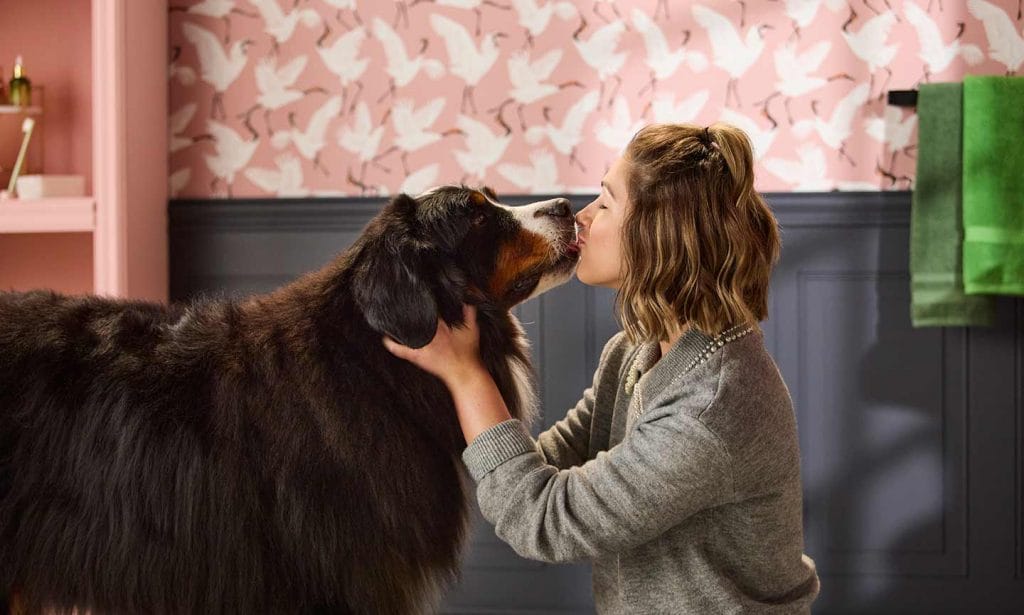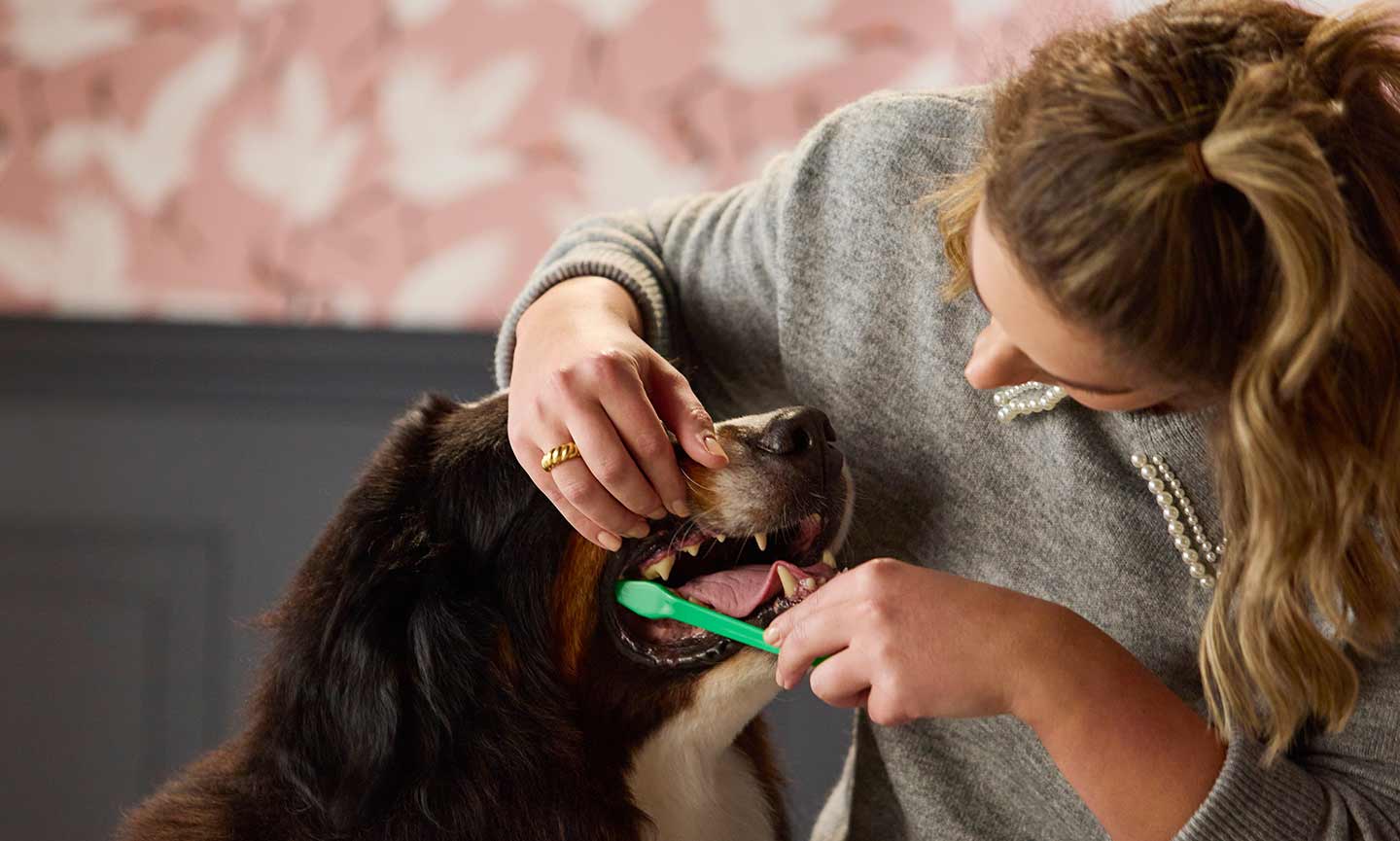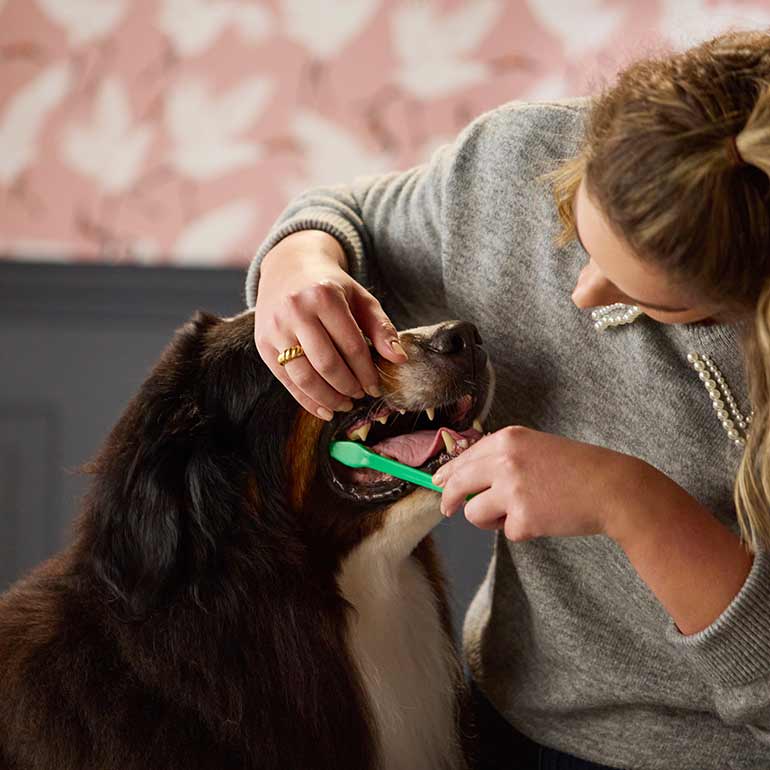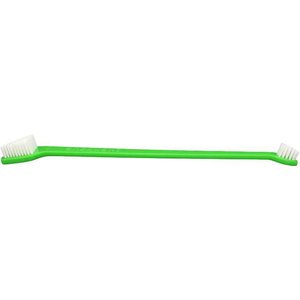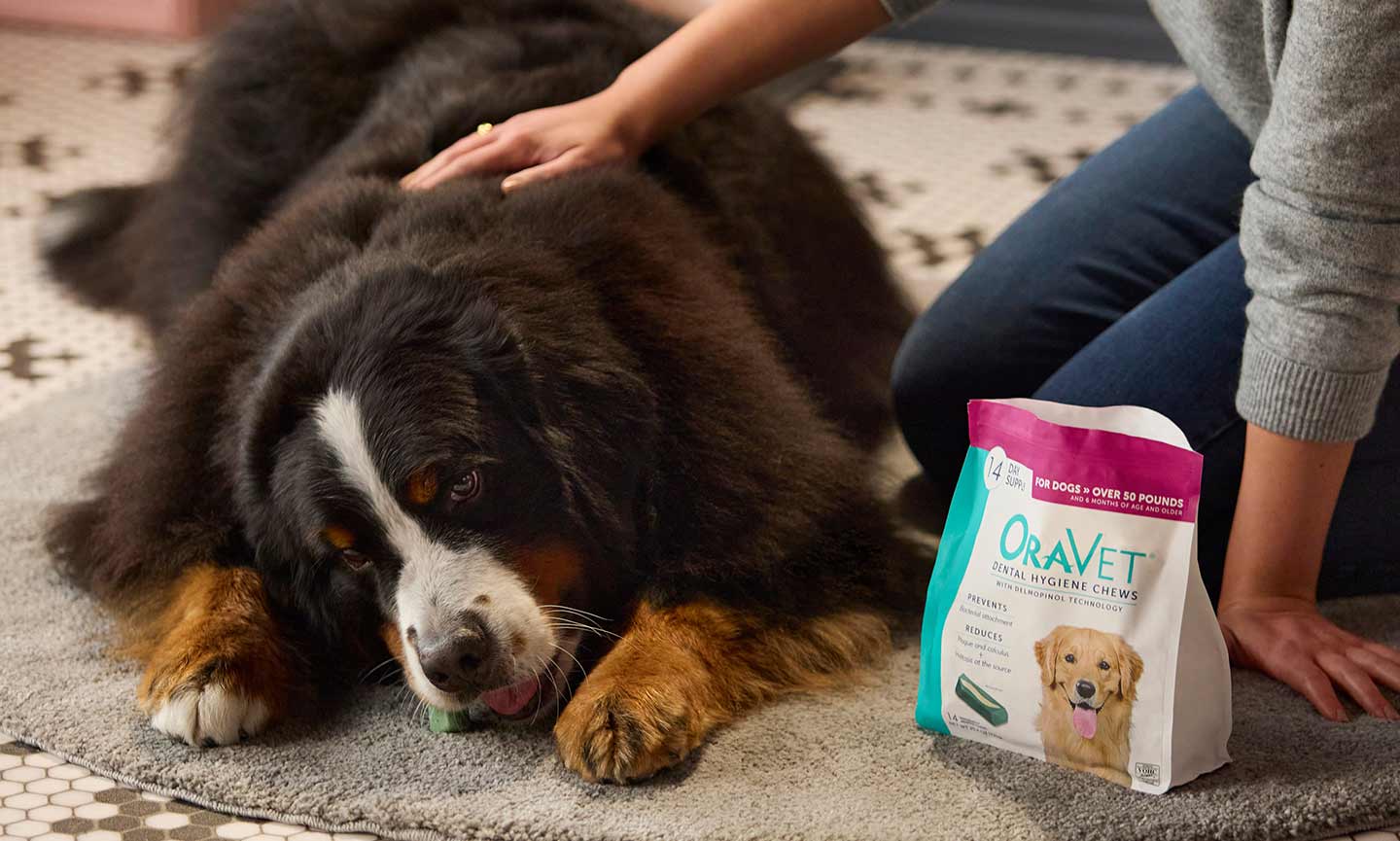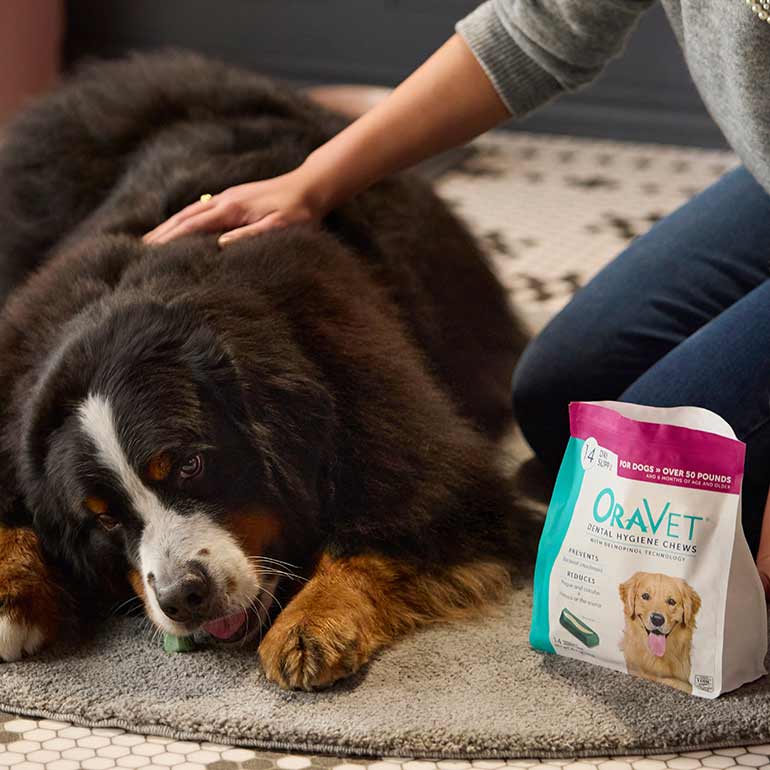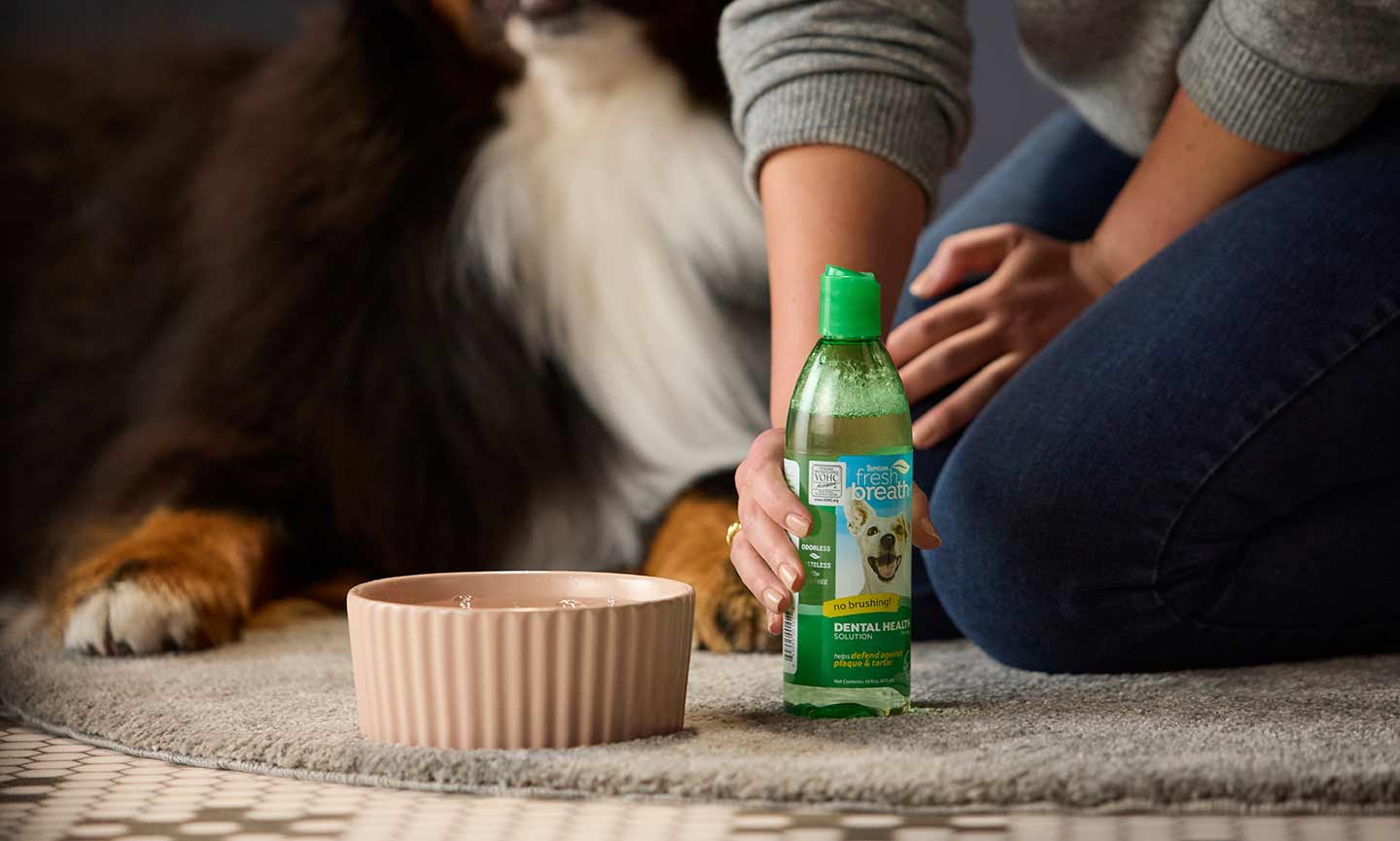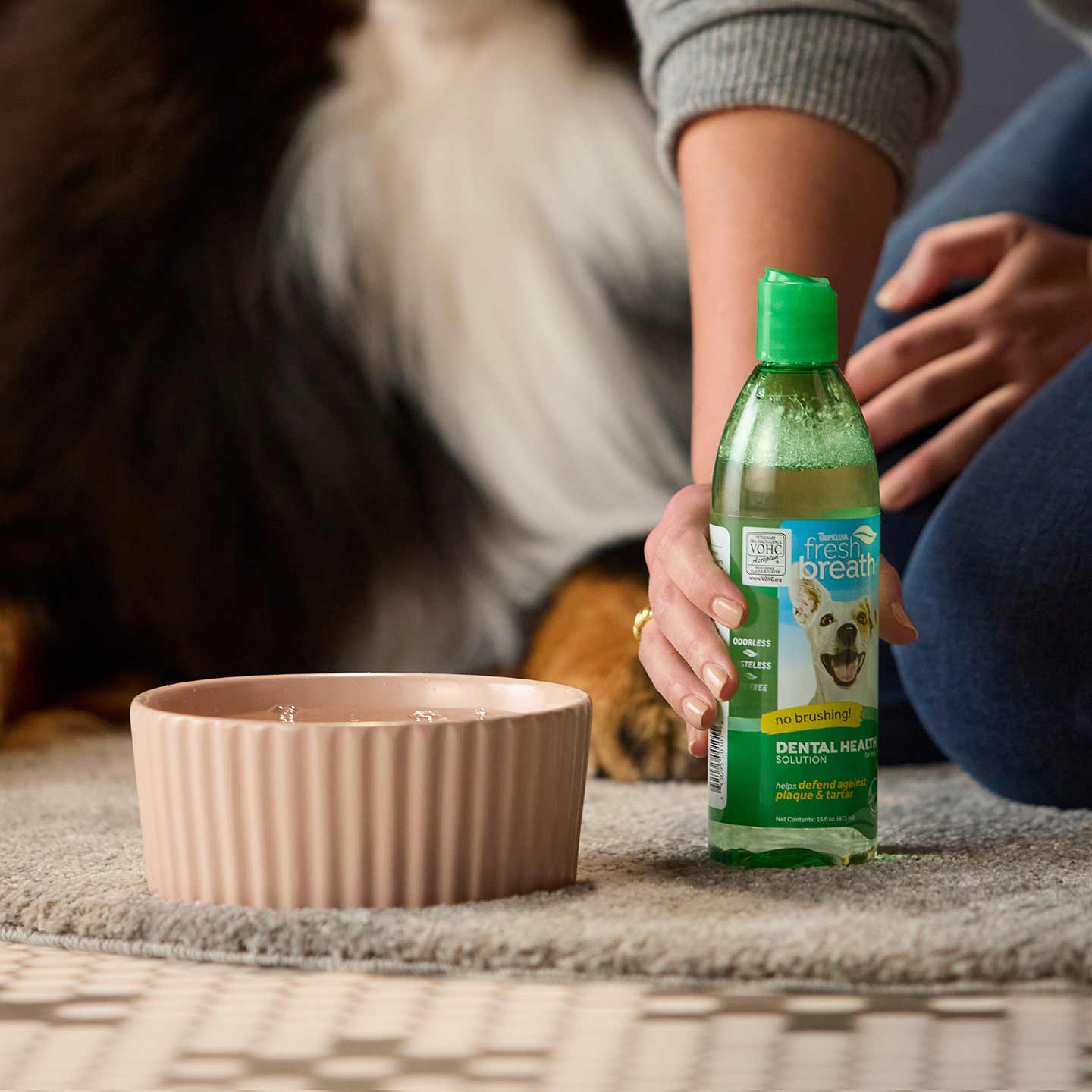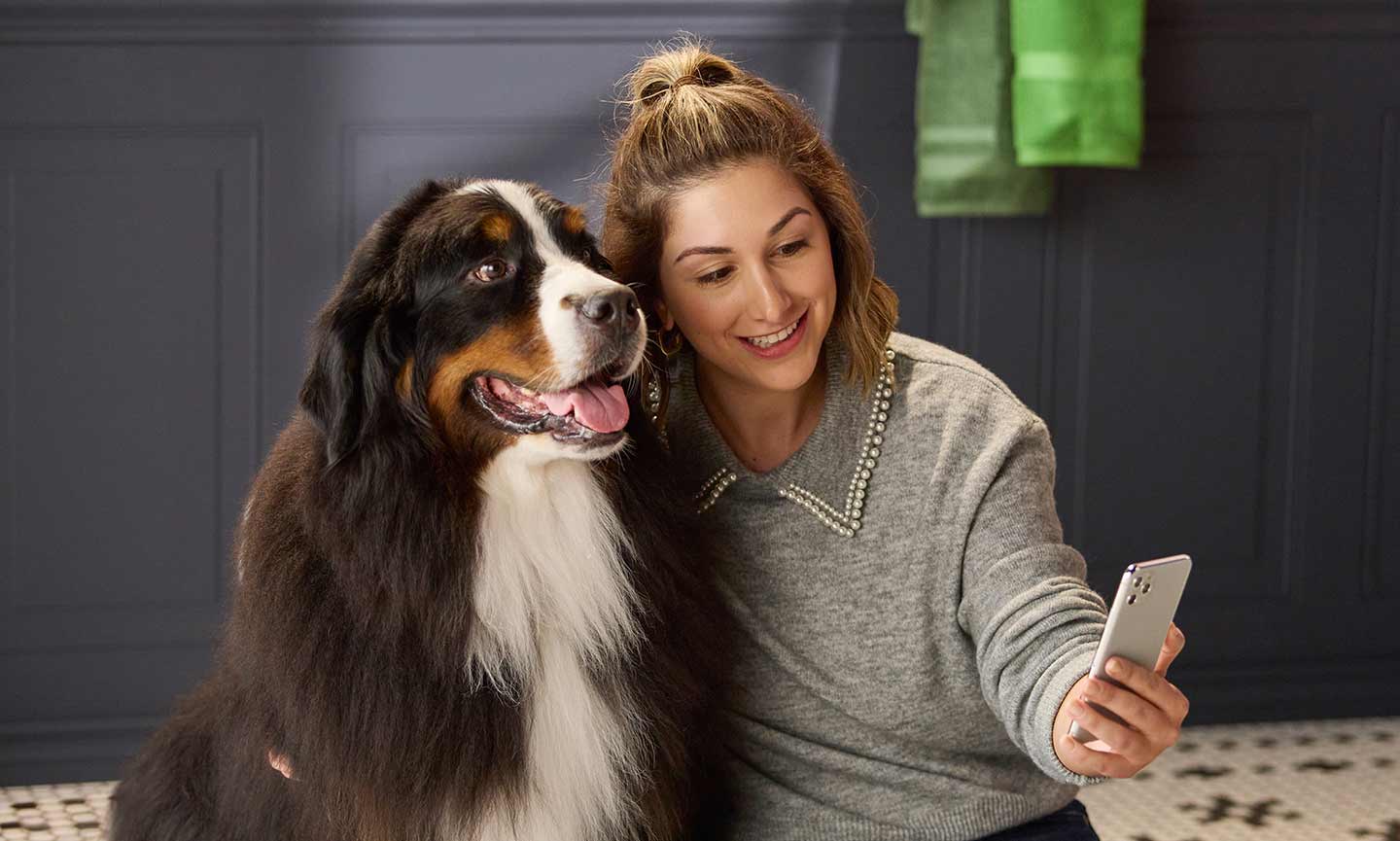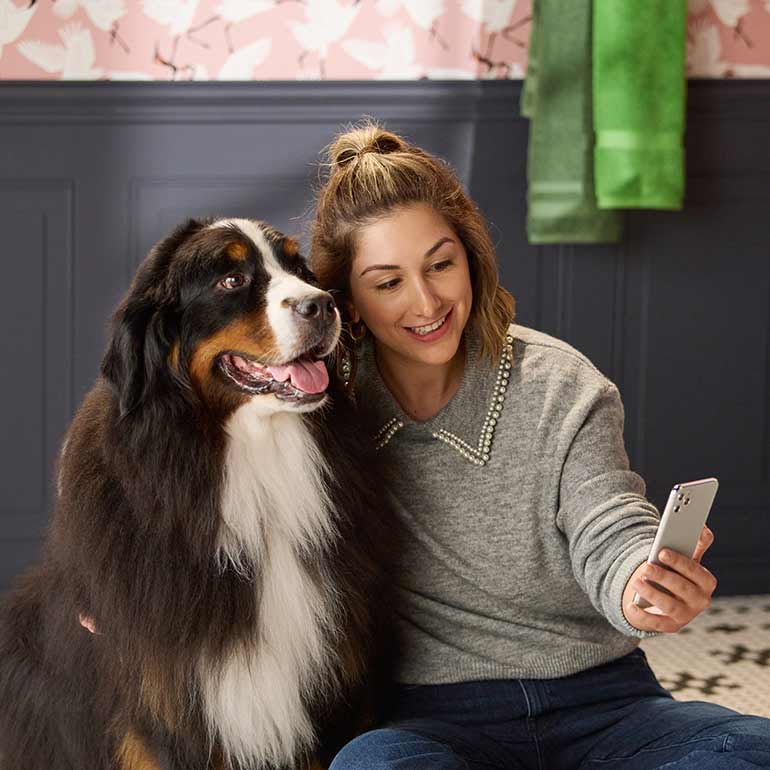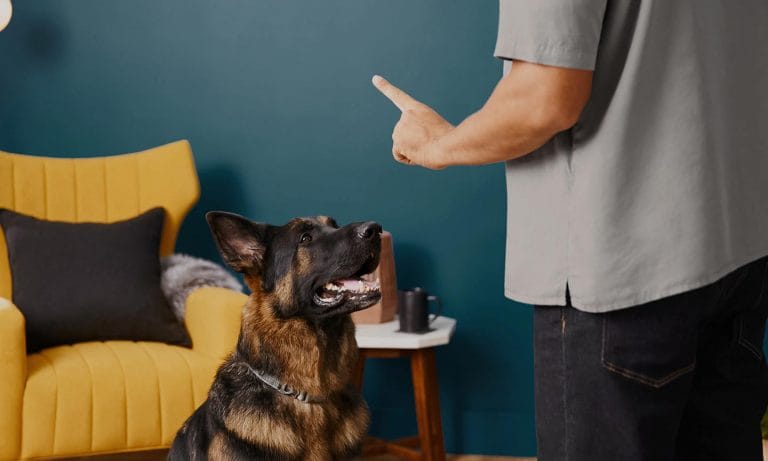Top Takeaways
- Stinky dog breath isn’t something you should ignore. It can signal an underlying health issue, dental disease, or unusual diet.
- Scheduling professional routine dental cleanings each year can help keep your pup’s oral hygiene in tip-top shape both now and into the future.
- There are at-home treatments you can rely on to help supplement oral health care for your pup.
Of course kisses from your pup are welcome no matter what—but those licks ’o love would be even better if you just knew how to get rid of your dog’s bad breath.
According to veterinarian Dr. Danielle Bernal, BVSc, MRCVs, the global director of vet nutrition at WellPet, LLC, dog parents shouldn’t just grin and bear their pet’s less-than-fresh breath. “A lot of pet parents will overlook stinky dog breath and consider it ‘normal,’” Bernal says. “But bad breath can actually signal dental disease or other serious health concerns.”
To keep your dog healthy and their kisses at their most pleasant, here’s everything you need to know about bad breath in dogs, including why it happens, how to fix it and how to prevent it in the first place.
In This Guide
5 Common Causes of Bad Breath in Dogs
That stinky smell coming from your fur baby’s mouth is likely caused by one of five common causes, our veterinary experts tell us.
1. Plaque and Tartar Buildup
Just like humans, dogs can get plaque and tartar buildup on their teeth—and it’s the most common reason dogs have bad breath. The buildup of bacteria on a dog’s teeth releases byproducts that contain stinky sulfur, causing the smell you may notice when your fur baby kisses your face, explains Dr. Sarah Dougherty, DVM, a veterinarian at Willowbrook Veterinary Hospital in Tigard, Oregon.
2. Periodontal Disease
If plaque and tartar continue to grow on a dog’s teeth, it may lead to periodontal disease.
“Plaque and tartar push gums away from their teeth, which leaves their mouth susceptible to holding on to bacteria in the newly exposed areas and inflaming the gums,” explains Dr. Katie Billmaier, DVM, shelter veterinarian at Furry Friends Adoption, Clinic & Ranch in Jupiter, Florida. “Cavities, infection, tissue destruction and pus can form.” Also keep an eye out for red or inflamed gums.
What’s worse than the stinkiness is that periodontal disease causes discomfort for your pet. In severe cases, it requires tooth extractions. Billmaier says to keep an especially close eye on flat-faced dog breeds, like Boston Terriers and French Bulldogs, who are more prone to developing periodontal disease due to their teeth being closer together.
3. Something Stuck in Their Teeth
Unless you’re brushing your dog’s teeth every day, it’s quite possible your pup may have gotten something caught in between their teeth or gums.
When a piece of food or another foreign object (such as a piece of stick) gets stuck, bacterial infection may begin to set in, causing your dog’s bad breath, says Annette Louviere, DVM, technical support veterinarian at Wisdom Health in Vancouver, Washington. “If you suspect your pup has a foreign body stuck in their mouth, you should consult your veterinarian immediately,” she says.
4. Their Diets
A lot of dogs get into questionable things throughout the day, and this mischief can affect how their breath smells, Bernal notes.
“If a dog rummages through the garbage for scraps or is inclined to eat poop—whether it be their own, another dog’s or a cat’s—their breath may stink,” she says.
Those are obvious culprits of bad breath in dogs, and you might be wondering what you can do about it. First, do some research on coprophagia (the inclination to eat feces) and check out our tips on how to keep your dog from getting into what they shouldn’t. Just remember that positive reinforcement works a whole lot better than punishment.
5. Underlying Health Issues
Unfortunately, sometimes bad dog breath is a sign of a serious health issue, such as diabetes, kidney disease or liver disease, Billmaier says.
“A sweet or fruity smell [on your dog’s breath] could be a sign that your dog is diabetic,” she says. “A urine odor could mean your dog is suffering from a kidney problem. And if your pooch is vomiting or has loss of appetite; gums with a yellow tinge; or extremely foul breath, it could be a sign of liver disease.”
If you notice anything like what Billmaier describes, call your vet ASAP to schedule an exam.
How to Fix Bad Dog Breath
When your dog’s breath smells, fixing the issue pronto is a must. How you do this depends on the cause, says Dougherty, so it’s important to work with your vet to determine the underlying reason for your poor pet’s stinky breath. That said, these tips can help to keep bad breath at bay. When the stench persists, talk to your vet.
1. Brush Your Pup’s Teeth Daily
You wouldn’t go a day without brushing your own teeth, right? Well, your pet’s daily dental routine is just as important. Most vets recommend brushing your pup’s teeth at least two to three times a week, and some even every day! It's the best way to reduce the amount of plaque buildup and keep food particles from sitting on the teeth.
To get started, stock up on supplies: You’ll want to use a toothbrush and toothpaste specifically designed for dogs—so no sharing your own toothpaste with your pup! (It most likely contains ingredients that are unsafe to dogs.)
2. Give Your Dog Dental Chews
While brushing your dog’s teeth is the most effective, Dougherty suggests buying enzymatically coated dental chews as a way to supplement their dental health. These teeth-cleaning treats can help remove plaque from your dog’s teeth, keeping their breath smelling beautifully fresh.
“These chews are coated with the same types of enzymes that are in the toothpaste,” Dougherty explains. Not only do they help remove tartar by scraping against your dog's teeth as they chew, but they also battle tartar and bacteria on a chemical level.
3. Use a Water Additive
Water additives can also help prevent bad breath by fighting off plaque, tartar and the resulting bacteria growth, according to Stephanie Liff, DVM, of Pure Paws Veterinary Care in New York City.
Like dental treats, these supplemental solutions contain plaque and bacteria-fighting ingredients, but in liquid form. They can be added to your dog’s water for an easy way to help boost their dental health.
4. Talk to Your Vet
Your dog’s veterinarian is actually their dentist, too, so regular vet checkups are important in keeping their teeth and mouth healthy—and key in keeping bad breath away.
“If your pup is consistently showering you in smelly kisses, clears a room with their yawns or has morning breath that lasts all day, I suggest connecting with your veterinarian for an evaluation,” Bernal says.
Your veterinarian may uncover specific health issues (like the ones described above) and recommend appropriate medications, such as antibiotics and supplements, to properly treat it and prevent it from progressing.
Consider a Professional Dental Cleaning
If your dog’s bad breath is caused by plaque and tartar buildup, or if that buildup has progressed to periodontal disease, your vet may want to schedule a thorough teeth cleaning. It’s worth noting that having your dog’s teeth professionally cleaned usually requires anesthesia, says Billmaier. Talk to your vet about what they offer and what’s right for your pup.
Can You Use Dog Bad Breath Home Remedies?
No doubt you’re desperate to find relief from that stinky breath ASAP. Your pup is probably eager to nix the stench (and its underlying cause) swiftly, as well. However, the best treatments for your pup are outlined above: grabbing the toothbrush and dog toothpaste; trying water additives and dental chews; speaking with your vet; and professional cleanings.
DIY home remedies aren’t typically strong enough to tackle the possible causes of bad dog breath, says Dr. Julie Sanders DVM, veterinarian and director of operations for Heart + Paw in Philadelphia.
“A lot of home remedies, while intended to be helpful, are unpleasant or even harmful for pets,” she says. Plus, masking the smell of bad breath may delay care for a more serious underlying condition, such as oral infections, oral tumors, gingivitis (gum disease) or another health problem.
When to Go to the Veterinarian
Even if stinky breath feels like a mild issue, it’s always better to err on the side of caution and take your dog to the veterinarian as soon as you realize there’s a problem. After all, this isn’t just a matter of foul breath—it’s an oral health concern or even sometimes a general health concern.
“While it’s not an emergency, it should be addressed within a few days or weeks,” Sanders says. “As with any condition, dental and medical diseases are easier, less invasive and less expensive to treat in the early stages.” If your pet has other clinical signs such as vomiting, diarrhea, inappetence, or lethargy, have your pet evaluated immediately.
In addition, the sooner the underlying cause is addressed, the sooner your pet can find more comfort. If the stinkiness is never-ending, there’s a good chance they’re not feeling so great, either.
Treatment for Bad Breath in Dogs
The best treatment for bad breath is to treat the underlying condition, which ranges from dental disease and poor diet to health issues.
“There are serious illnesses that can cause bad breath like kidney failure, diabetes, mal-digestion issues, etc.,” Sanders says. These should always be ruled out before trying treatment for halitosis. “No product can effectively treat bad breath if the underlying cause is not addressed.”
Here are some veterinarian-recommended treatment options, which ultimately depend on the underlying issue:
Probiotic Supplements
If your dog has occasional mild gastrointestinal upset, Sanders says a probiotic your veterinarian recommends may help with smelly breath.
Coprophagia Curbing Chews
Some dogs have bad breath because they like eating feces, Sanders says. In this case, the use of supplemental products like Zesty Paws Chew No Poo supplements —which only works if they are eating their own feces—may help stop the stool-eating that is creating the bad breath.
Oral Health Diets
Several reputable brands—such as Purina Pro Plan Veterinary Diets, Royal Canin and Hills—offer dental diets that either require an authorization from your vet or over the counter, Sanders says. The ones on the Veterinary Oral Health Council webpage have been shown to help reduce or slow tartar accumulation.
“These special dental diets work best if starting after a dental prophylaxis,” Sanders says. “Also, if your dog already has significant dental disease, these diets may be painful, since chewing them with loose or sensitive teeth can hurt.” Talk to your vet about whether a diet from this list is appropriate for your dog.
How to Prevent Bad Breath in Dogs
So how can dog parents prevent a case of doggy halitosis to begin with? Turns out, the best way to prevent bad smells is very similar to the treatment of said stink.
- Consistent oral hygiene: “In general, maintaining oral and overall health is the best way to keep breath fresh,” Sanders says. Start toothbrushing when your dog is a puppy and keep it up throughout the life of your pet.
- Water additives: Sanders is a proponent of water additives to help your dog’s breath remain fresh, and to help with issues such as tooth decay, plaque buildup and gum disease.
- Curbed behavior: If your pup isn’t chowing down on stinky foods and objects (like trash or feces), their breath is naturally going to smell way better. It takes patience to curb these curious habits, but the effort is well worth it.
- Annual cleanings: “Keep in mind that humans usually brush and floss twice or more daily, and still need to get their teeth cleaned twice a year,” Sanders says. “It only makes sense our canine companions need similar routine care.”
The Best Products for Bad Dog Breath
To help banish stinky smelling breath, try these products.
Toothbrush and Toothpaste
- Virbac C.E.T. Toothbrush: Its long handle and dual angled ends are designed to help you reach each and every tooth.
Dental Chews
- OraVet Chews: Formulated with delmopinol, which helps form a barrier against the bad breath-causing bacteria.
- WHIMZEES Treats: Contain powdered cellulose to help polish your pup’s teeth.
Water Additives
- TropiClean Water Additive: Helps fight tartar buildup with green tea leaf extract.
Oral Health Diets
- Hill's Science Diet Dry Dog Food: An over-the-counter dog food that promotes good oral health via interlocking fiber technology that minimizes plaque and tatar buildup.
- Purina Canine Formula: An effective prescription dog food diet that supports good oral health by controlling plaque and tartar.
Treating bad dog breath at the source (and preventing it in the future) helps keep your furry pal at their healthiest—and their kisses smelling delightful! Which is a good thing, because some dogs really love to shower you with love (and drool). Wondering why your dog is always licking you? We've got the scoop.
Expert input provided by Dr. Julie Sanders DVM, veterinarian and director of operations for Heart + Paw in Philadelphia; Dr. Danielle Bernal, BVSc, MRCVs, global director of vet nutrition at WellPet, LLC; Dr. Sarah Dougherty, DVM, veterinarian at Willowbrook Veterinary Hospital in Tigard, Oregon; Annette Louviere, DVM, technical support veterinarian at Wisdom Health in Vancouver, Washington; and Dr. Katie Billmaier, DVM, shelter veterinarian at Furry Friends Adoption, Clinic & Ranch in Jupiter, Florida.
This content was medically reviewed by Chewy vets.
Keep Those Chompers Healthy
Share:
